I have a <select> which I populate with weeks from an ajax call.
Some of the items should be red (setting a class where reddays > 0).
I prefer to not use ng-repeat to output the options, because that I only experience problems with it, setting/getting ng-model and selecting an item programmatically.
Instead I want to use ng-options so I need to specify which <option>:s that have a certain class.
On the Stack Overflow page Angular.js - adding a class to an option with ng-options there is an outdated solution, as it seems, but it introduces an attribute on the <select> called options-class="{foo:num>3}".
I tried to use it in https://jsfiddle.net/AndersBillLinden/ne0z9vwm/10/
but all items becomes black.
I really want to use the whole week object as model as you probably see. Can´t I do that?
html:
<div ng-app="app" ng-controller="testController" style="height: 100%">
Week:
<select id="week" style="width: 60px"
ng-change="on_week_changed()"
ng-options="w as w.num for w in weeks"
options-class="{redweek: reddays>0}"
ng-model="week">
</select>
</div>
js:
$scope.weeks =
[
{num: 1, reddays: 3},
{num: 2, reddays: 0},
{num: 3, reddays: 0},
{num: 4, reddays: 1}
];
$scope.on_week_changed = function()
{
alert($scope.week.num);
};
}).directive('optionsClass', function ($parse) {
return {
require: 'select',
link: function(scope, elem, attrs, ngSelect) {
// get the source for the items array that populates the select.
var optionsSourceStr = attrs.ngOptions.split(' ').pop(),
// use $parse to get a function from the options-class attribute
// that you can use to evaluate later.
getOptionsClass = $parse(attrs.optionsClass);
scope.$watch(optionsSourceStr, function(items) {
// when the options source changes loop through its items.
angular.forEach(items, function(item, index) {
// evaluate against the item to get a mapping object for
// for your classes.
var classes = getOptionsClass(item),
// also get the option you're going to need. This can be found
// by looking for the option with the appropriate index in the
// value attribute.
option = elem.find('option[value=' + index + ']');
// now loop through the key/value pairs in the mapping object
// and apply the classes that evaluated to be truthy.
angular.forEach(classes, function(add, className) {
if(add) {
angular.element(option).addClass(className);
}
});
});
});
}
};
});
css:
.redweek
{
color: #f00;
}
